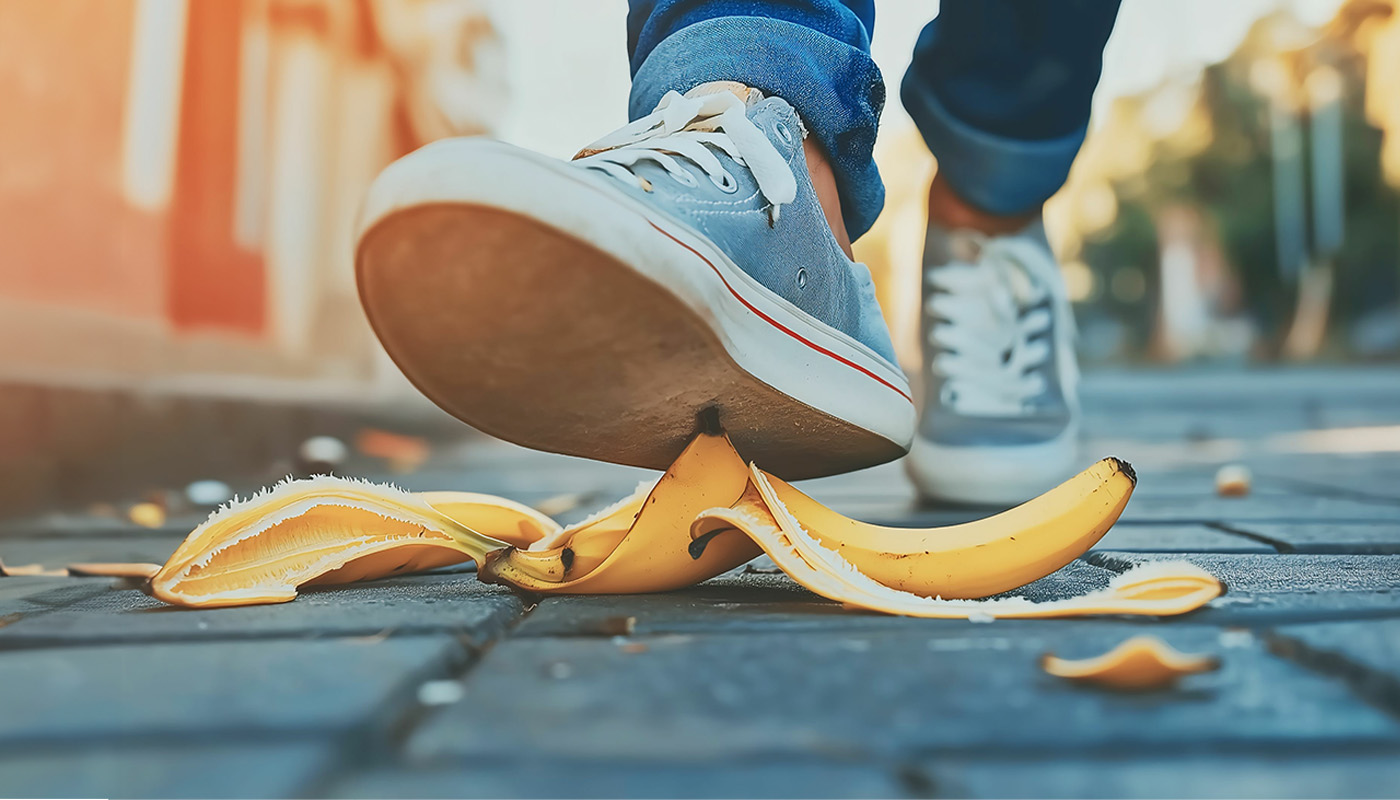
Everyday IP: Breaking the law without knowing it
Intellectual Property (IP) law shapes how we develop, protect and share innovations, brands and creative works. Yet because it permeates so much of modern life, even well-meaning individuals can inadvertently breach it — often with serious legal and financial consequences. Here are some real-world examples.
When plant propagation crosses legal lines
It starts with a simple cut. A gardener snips a piece of a prized succulent, lets it callus over and plants it in a new pot. Before long, it thrives, and joy spreads. What seems like an innocent act gets, in some cases, a green thumbs-down from IP law.
Plant patents and Community Plant Variety Rights (CPVRs) protect new and unique cultivars, giving breeders exclusive rights to reproduce them. The rules vary slightly around the world and according to the specific type of IP rights involved. For instance, in the European Union, CPVRs last 25 years – or as long as 30 for some plant types, including potatoes, trees and vines. Meanwhile, in the United States, plant patents provide 20 years of protection and specifically exclude potatoes if they are tuber propagated.
The short of this is that breeding certain succulents or even trading seeds from a patented vegetable can be an infringement. Echeveria "Pink Diamond" and Monstera "Sumi1" are just two examples of plants that received patent protection. The same is true for fruits like Honeycrisp apples and Cotton Candy grapes, both developed through years of research and selective breeding.
While gardeners have unknowingly admitted to infringement in forums by sharing cuttings or reselling homegrown plants, practically speaking, a large commercial patentee may consider these innocuous, individual breaches to be small potatoes. These companies rarely pursue hobbyists beyond issuing a cease and desist letter, but they have brought legal action against competitors who grow or sell unlicensed plants.

In the United States, plant patents only cover new and distinct varieties that are asexually reproduced. This means that each generation propagated by cutting, grafting or culturing is genetically identical to the protected original.
However, when courts become involved, the biological nature of the subject matter can make proving infringement difficult. For instance, it may be thorny to show a defendant has carried out certain actions, as was the case in David Austin Roses Ltd vs. GCM Ranch LLC, where the plaintiff "failed to plausibly allege that GCM Ranch's roses were asexually reproduced from David Austin's roses."
So, it is clear that gardening can make you an oblivious criminal. Are you safe if you put down the plants and switch on the radio? Not so fast; when it comes to IP law, it matters where the music is playing.
The bitter side of broadcasting
Imagine a coffee shop with a perfect atmosphere: warm lighting, the scent of fresh espresso and a curated playlist setting the mood. Still, if that playlist comes from a personal Spotify account, the business is in violation of copyright laws.
Private accounts for streaming services like Spotify, Apple Music and Netflix are meant for personal use only. Using them in a business setting requires a commercial license as it is considered a public performance – a fact that can easily be neglected.
Businesses that want legal background music can acquire the licenses needed directly from the copyright holder(s) or turn to performing rights organizations (PROs) and collective management organizations (CMOs). However, the web of overlapping rights can turn easy listening into a pounding headache. A more practical approach could be to work with companies like Soundtrack Your Brand and PPL PRS, which handle all necessary licensing fees on behalf of their clients, or to invest in music specifically recorded for office environments and other business settings.
From elevators to phone waiting lines to corporate promos, "Muzak" has been a staple of inoffensive ambient soundscapes for decades. Still an active trademark, the brand established by U.S. General George Squier in 1934 has survived both retirement following an acquisition by Mood Media in 2011 and becoming synonymous with the more-than-slightly kitsch genre.

The difficulty of detecting copyright infringement through unlicensed public performances means that action is rarely taken against offenders. This is not a free pass, however, as willful violations are liable for increased monetary damages.
So spare a thought for copyrights the next time you are queuing at the checkout or awaiting your turn at the dentist's surgery – it just might take your mind off the business at hand.
Social trap: sued for posting yourself
A celebrity steps out of a luxury car in an exclusive shopping district. A photographer captures the moment of practiced glamour, and within hours, the image is licensed to media outlets around the world. But can the famous face freely share the photo on their socials just because they are the subject?
As Khloé Kardashian, Gigi Hadid and Jennifer Lopez have all learned, the answer is no. Celebrities cannot use or share paparazzi photos of themselves because it is not the person in the picture who owns the copyright but the photographer. Even crediting the image owner does not make reposting legal. Fair use or fair dealing exceptions might apply under some circumstances, but the finer legal points are largely untried in court since these IP conflicts rarely proceed to judgment.
Some photographers make a business of tracking unlicensed use, issuing demand letters that leave no room for argument. On the flip side, photography subjects have pushed back. As well as invoking fair use, defenses have argued the existence of implied licenses and questioned whether particular images are even original and creative enough for copyright protection – all with mixed results. Quiet (and presumably steep) settlements make sure that these matters of law remain academic for the most part.
You likely will not be sued for using a friend's perfect candid shot as your new profile picture unless they are a stickler for IP regulations. Regardless, the fact remains that using someone else's work without permission is technically breaking the rules.

Copyrights are for everyone, not just celebrities and career artists. This means any photo you take that shows a minimum degree of creativity or judgment qualifies for exclusivity, even if you are not the (only) subject.
We have seen that copyright law applies even to an image of your face, but what happens if the work in question is on your face?
Who owns your ink? Tattoos and copyrights
A basketball player sprints down the sideline, the camera zooming in to capture every intricate detail of the athlete's tattoo. Yet this is not a live broadcast but a video game, and the commitment to realism could trigger a lawsuit.
This was the case when LeBron James and his tattoos were represented in the "NBA 2K" basketball video game series. The artist who owned the rights to some of those tattoos took matters from the basketball court to the court of law when he sued developers 2K Games for copyright infringement. In the end, a jury was convinced that 2K Games did not infringe the tattooist's rights since it had an implied license deriving from its agreement to recreate LeBron James' likeness.
It was a very different story just four years earlier, when Take-Two Interactive, the parent company of 2K Games, lost a copyright battle with another artist over representing the tattoos of WWE wrestlers.
A similar clash also took place in 2011, when the appearance of Mike Tyson's famous facial markings threatened to postpone the release of the film "The Hangover Part II." In this case, the artist was concerned with copyright infringement and potential reputational damage stemming from how his design was used as a plot point. Eventually, as in so many paparazzi cases, the parties settled confidentially, and the comedy went on to become a huge success.
IP laws are everywhere – even where you least expect
Whether it is a gardener propagating a patented plant, a café owner streaming a Netflix show or an influencer reposting someone else's snaps, IP rights extend into our day-to-day lives in ways few stop to consider. The most important thing to remember is that these laws are pervasive not to be a nuisance but to ensure that our everyday creativity and ingenuity – our everyday IP – is protected.
Hoping to protect plants, photographs, tattoos or any other creation? Contact the Dennemeyer team and let IP law work for you.
Filed in

From briquettes and gas to infrared and smart technology, discover how Intellectual Property has fueled innovation at your seasonal cookout.



